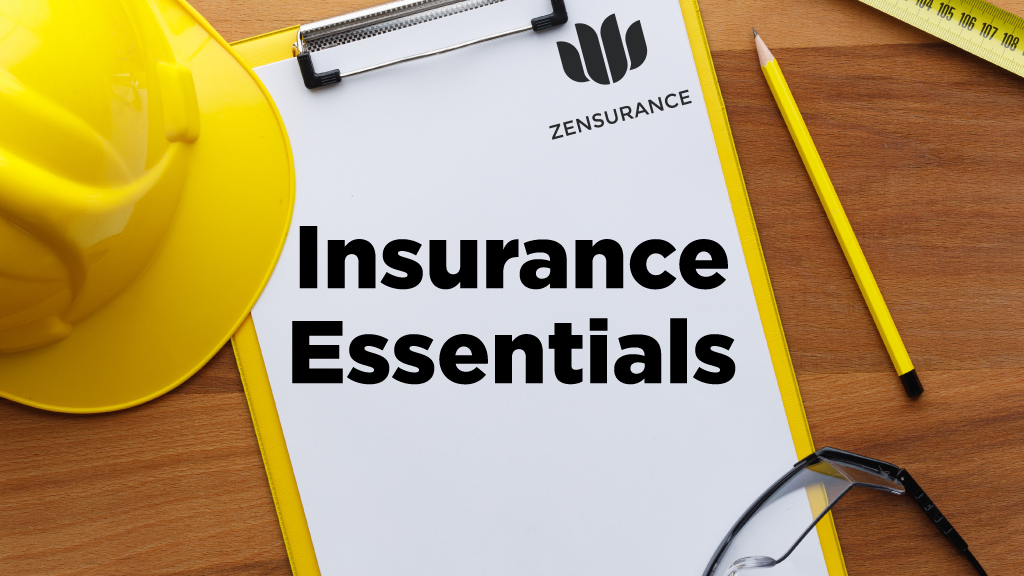
Insurance Essentials: Why buying the cheapest policy isn’t always the best choice
[ad_1]
What should be top-of-mind when buying insurance is knowing what type of coverage you need and what your policy entails regarding limits and exclusions. Then compare the different options you have regarding the annual premium.
When shopping around for a business insurance policy like contractor insurance, you’ll see countless advertisements or websites trumpeting they offer the lowest, cheapest insurance premium you can get. So naturally, you gravitate toward that because, really, who wants to pay for insurance?
However, basing your purchasing decision on what insurer has the lowest price is not necessarily the way to go. Most often, it isn’t the best choice at all. Instead, what should be top-of-mind when buying insurance is knowing what type of coverage you need and what your policy entails regarding limits and exclusions. Then compare the different options you have regarding the annual premium. That’s why aligning yourself with a brokerage can make a difference. Brokers do the shopping for you to find the adequate protection you need at the most affordable price available.
For example, let’s say you’re seeking a commercial auto insurance policy for your pickup truck in Ontario. Like personal car insurance, you can buy a basic commercial auto policy that includes only the minimum coverages and limits required by law and get a reasonably low premium. But if you don’t include optional types of insurance such as collision or upset coverage, which pays to repair or replace your vehicle if you are at fault for an accident, and you smash up your pickup truck, that basic commercial auto policy won’t pay to fix or replace it. Is it cheaper to go without collision coverage? Yes. But is it worth it if you’re at fault for an accident? Clearly, no.
What are the pros and cons of selecting the cheapest insurance?
Obviously, if you opt for the cheapest policy you can find for your business, you’ll save some money and likely feel good about it. That is unless you need to file a claim and find out your insurance provider won’t cover your claim, or the minimum limit of that policy only covers a portion of the damages or losses you incur, leaving you to pay the rest out-of-pocket.
However, there are times when a basic policy with low coverage limits may be suitable for your needs. It’s not common, particularly in the construction industry, but exceptions exist. However, insurance should give you confidence and peace of mind that your needs will be taken care of if an unexpected disaster strikes, and you can get back to business quickly. But, if you’re underinsured, is that your best bet?
It’s also worth noting insurers will at times offer lower rates when taking on new customers. But it’s frequently an introductory offer that will almost certainly increase at renewal time, even if you haven’t filed any claims. Why? The premiums of many policyholders pay the claims of the few who suffer a claim. To ensure they have enough money to pay those claims, insurers may impose stricter rules when issuing new policies and reassess the premiums they charge for renewing policies.
Three ways to get adequate insurance at a fair price
There’s no shame in striving to find the cheapest policy you can find. After all, who doesn’t want to save money? Here are three things you can do to satisfy your insurance needs and keep your premium as low as possible:
- Partner with a licensed broker. Aligning yourself with a licensed business insurance broker to serve as your trusted adviser saves time, money and clears up any confusion you may have about your policy. Zensurance has more than 50 Canadian insurers in its network of partners and our brokers can review your coverage needs and find you a policy with a competitive rate. It’s your broker who can ensure you’re neither overinsured or underinsured.
- Identify risk management opportunities. Identify any risk management opportunities you can implement to decrease the likelihood of filing a claim. Even a small business with adequate loss control and risk management strategies in place will always get a lower premium.
- Look into insurance discounts. If your premium rises at renewal time, your broker can work with you to see if you are eligible for any discounts or savings opportunities. For instance, some insurance companies will offer a claims-free discount if you’ve filed no claims in the past six years.
Remember, minimal coverage equals minimal protection. Think about your business and its liability risks, talk to a broker and make an informed choice before buying or renewing an insurance policy.
Jon Hogg is a licensed broker and team lead, digital solutions, contractors at Zensurance, Canada’s leading digital business insurance brokerage. Get a free quote for your insurance needs by visiting Zensurance.com/DCN.
[ad_2]
Source link
